Main My Apologies Takeaways:
- My apology and my apologies are both correct. However, they have different functions.
- Use my apology (singular) when referring to a specific apology. This might be an apology that you already made or you will make.
- Use the phrase my apologies (plural) to express that you’re sorry for something that you did. You can use this phrase in place of I’m sorry or I apologize.
- My apologies follows the same colloquial rule as (my) congratulations and my condolences. These phrases are actually shortened versions of the full phrases “please accept my apologies/congratulations/condolences.”
- The word apology is a noun with three potential meanings.
You’ve made an error. Maybe you offended someone, were late, or said something inappropriate. It happens to us all. But, what now? If you want to make up for your mistake, it’s time to apologize. Using the wrong word could derail your entire mea culpa. We’ll walk you through the difference between my apology and my apologies, plus give you a the best ways to use both.
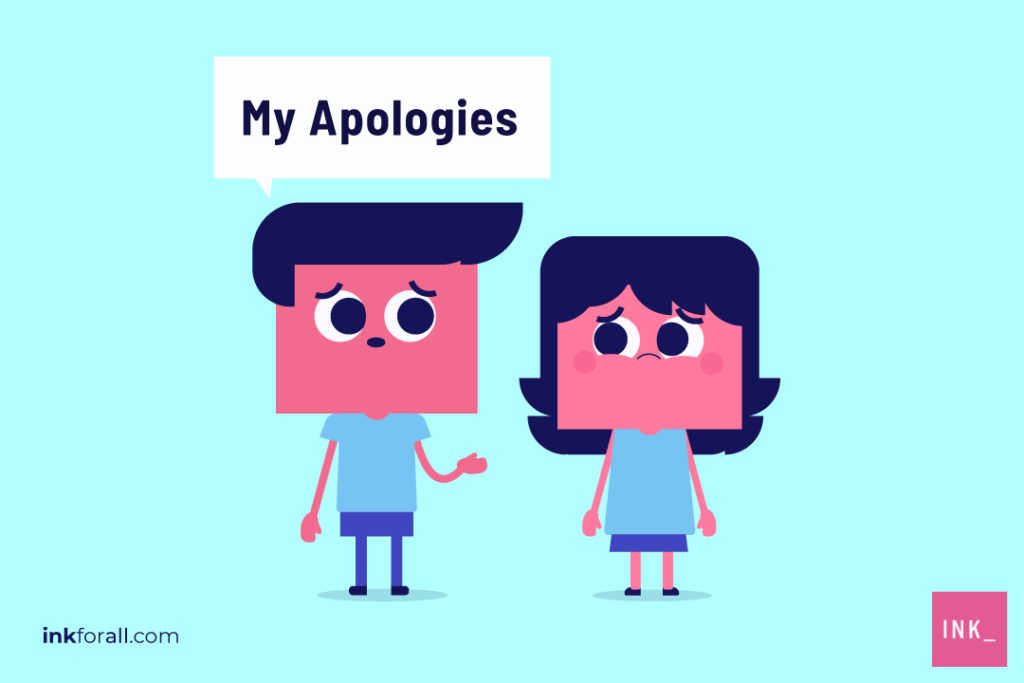

Is it Correct to say My Apologies?
They’re both correct, but whether to use my apologies (plural) or my apology (singular) depends on what you want to say. On one hand, if you want to say that you’re sorry, it is correct to say my apologies(plural). This is because “my apologies” is short for “please accept my apologies,” and you can use both phrases in place of I’m sorry or I apologize. You can also simply say “apologies,” just like you might just say “sorry.” However, this may be considered less formal, personal, and genuine than the full phrases. On the other hand, if you want to refer to a specific apology that you made, it is correct to say my apology.
In some cases, you may swap out “my” for “her” or “him.” It depends on whom the subject of your sentence is.
Can I use Sincere Apologies?
You can use my sincere/sincerest apologies as an alternative to phrases like I’m sorry, and forgive me. Generally, my apologies and my sincere apologies are more formal than I’m sorry.
Here are examples of how to use my sincere apologies in a sentence:
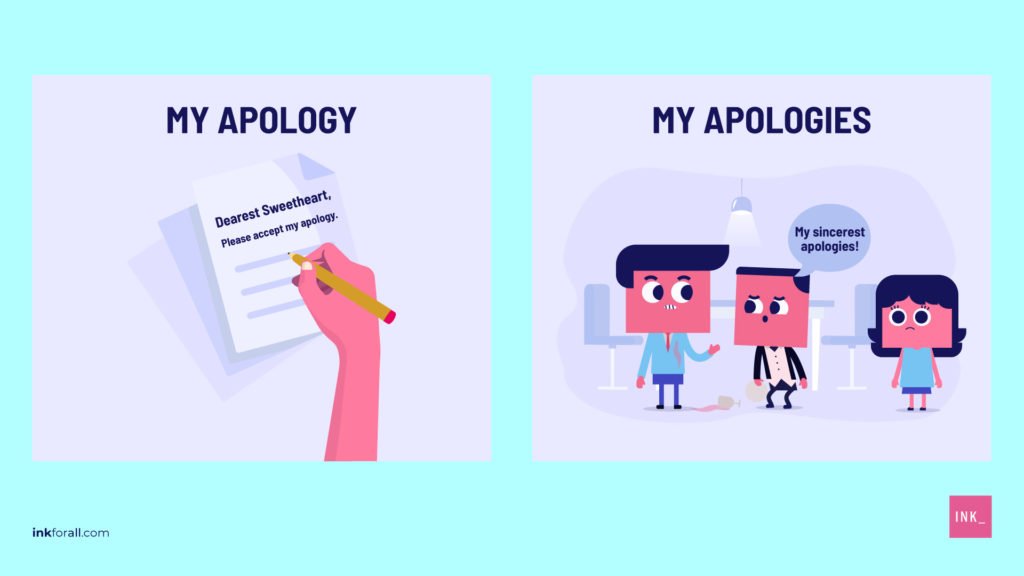

How do you use Apology in a Sentence?
Here are examples of how to use apology in a sentence:
- Indicate a poor-quality example of something.
- Refer to an acknowledgment of regret.
- Refer to a logical argument or justification.
How do you Apologize Professionally?
It’s crucial to start any apology with a genuine expression of remorse. Be sure you’re considering and showing understanding for the other party’s feelings. Admit your error and ask how you can make things better. Finally, end with an assurance that you’re committed to doing better in the future.
How do you say Apologies in Email?
Whether it’s a professional or personal apology, there are several steps to crafting the perfect apology email or letter. First, give a detailed description of the situation. Second, acknowledge the damage, pain, or inconvenience your actions caused. Third, and perhaps most important, you need to take full responsibility. Part of this is recognizing your or the company’s role in the issue. Fourth, clearly state that you regret what happened and that you know that it was hurtful. Fifth, ask for forgiveness. Next, pledge that you won’t make the same mistake again. Finally, offer restitution or compensation whenever possible. In other words, offer a way to make it right.
Best Phrases to Apologize in an Email
- Please accept my sincere apologies for…
- I would like to apologize on behalf of our company.
- I would like to express my deep regrets for…
- Please allow me to apologize for…
- I apologize for my failure to…
- Please accept my apologies.
- I apologize. I didn’t realize the impact of…
- Please accept our deepest apologies for…
- Please allow me to apologize for…
- I’m particularly sorry for…
- Please accept this as my formal apology for…
Sample Apology Email
Here is an example of a formal, work-friendly apology email:
I’m writing to conveymy apologiesfor the confrontation we had in the break room yesterday. I completely misunderstood that the vanilla creamer in the fridge was something special you brought from home. Suggesting you were a “creamer hoarder” was completely out of line. I can see how you must’ve felt threatened and embarrassed, and there is no excuse for how I reacted.
Iapologizecompletely and am open to a sit-down to discuss the issue further. In the future, I promise to respect the contents of our shared work fridge. I’ll also consider other people’s feelings before jumping to conclusions re: any creamer-related situations.
Best regards,
Sherry.
The most important thing about an apology is that you mean what you’re saying. However, it’s better if you can express it adequately, too. Follow these guidelines, and all your future apologies may get you back in good graces ASAP.
Are you Ready to Make the Perfect Apology? Test Your Skills!
Apology Question #1
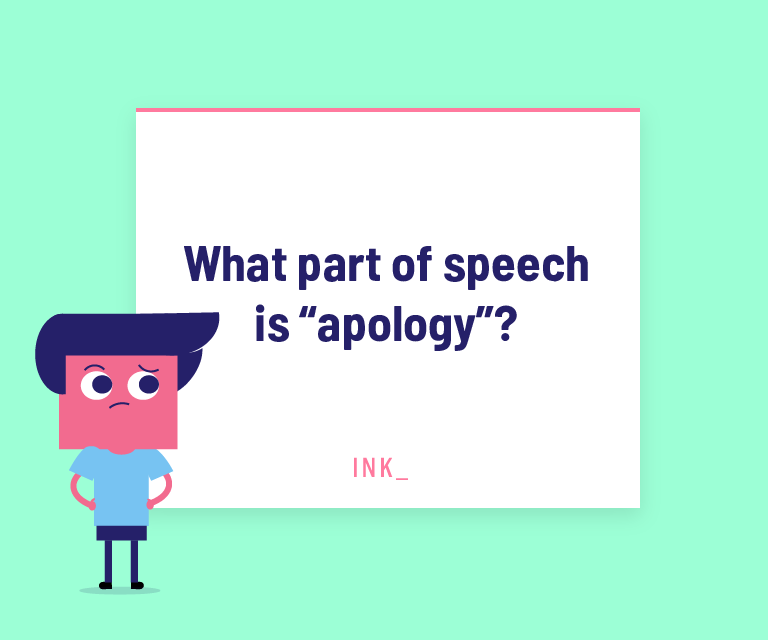

The answer is A. “Apology” is a noun that refers to an acknowledgment of regret of failure.
My Apology or My Apologies Question #2
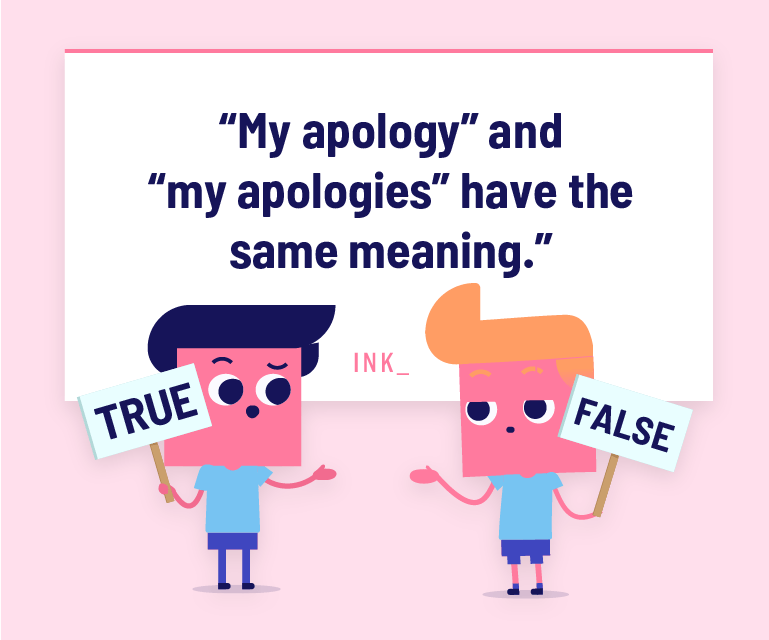

The answer is FALSE. “My apology” is an expression of ownership. It references an apology that you made or have yet to make.
My Apologies Question #3
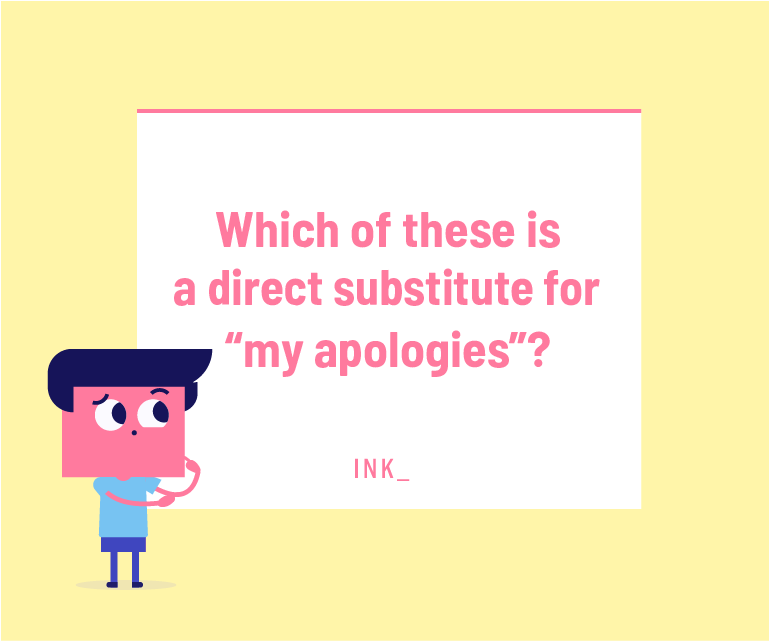

The answer is A. You can say “I'm sorry” instead of “my apologies.”
My Apology Question #4
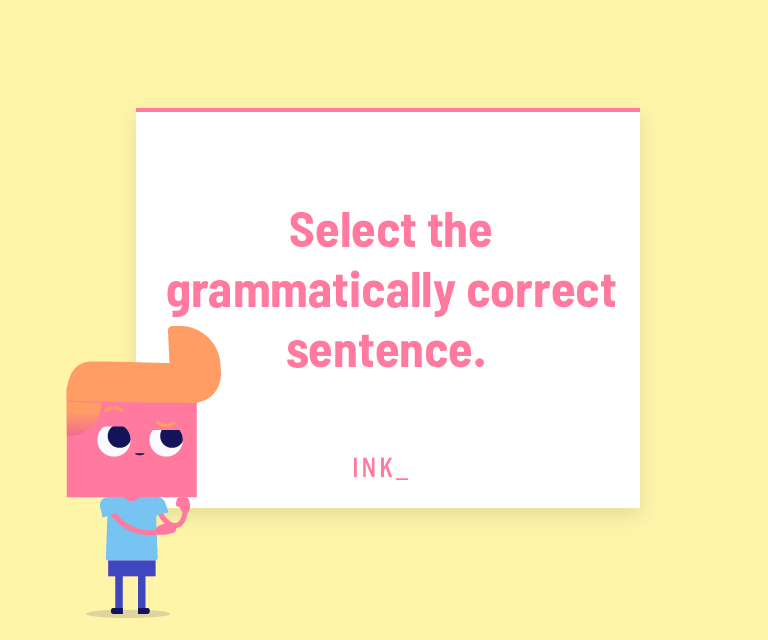

The answer is B. The speaker is telling someone that they're sorry for not attending a meeting.
My Apology vs. My Apologies Question #5
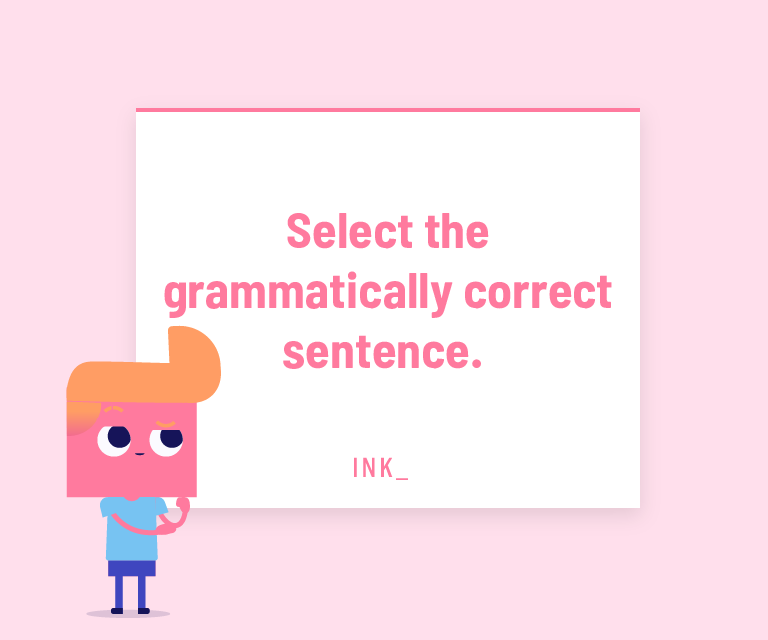

The answer is A. The speaker is referencing an apology that she made.


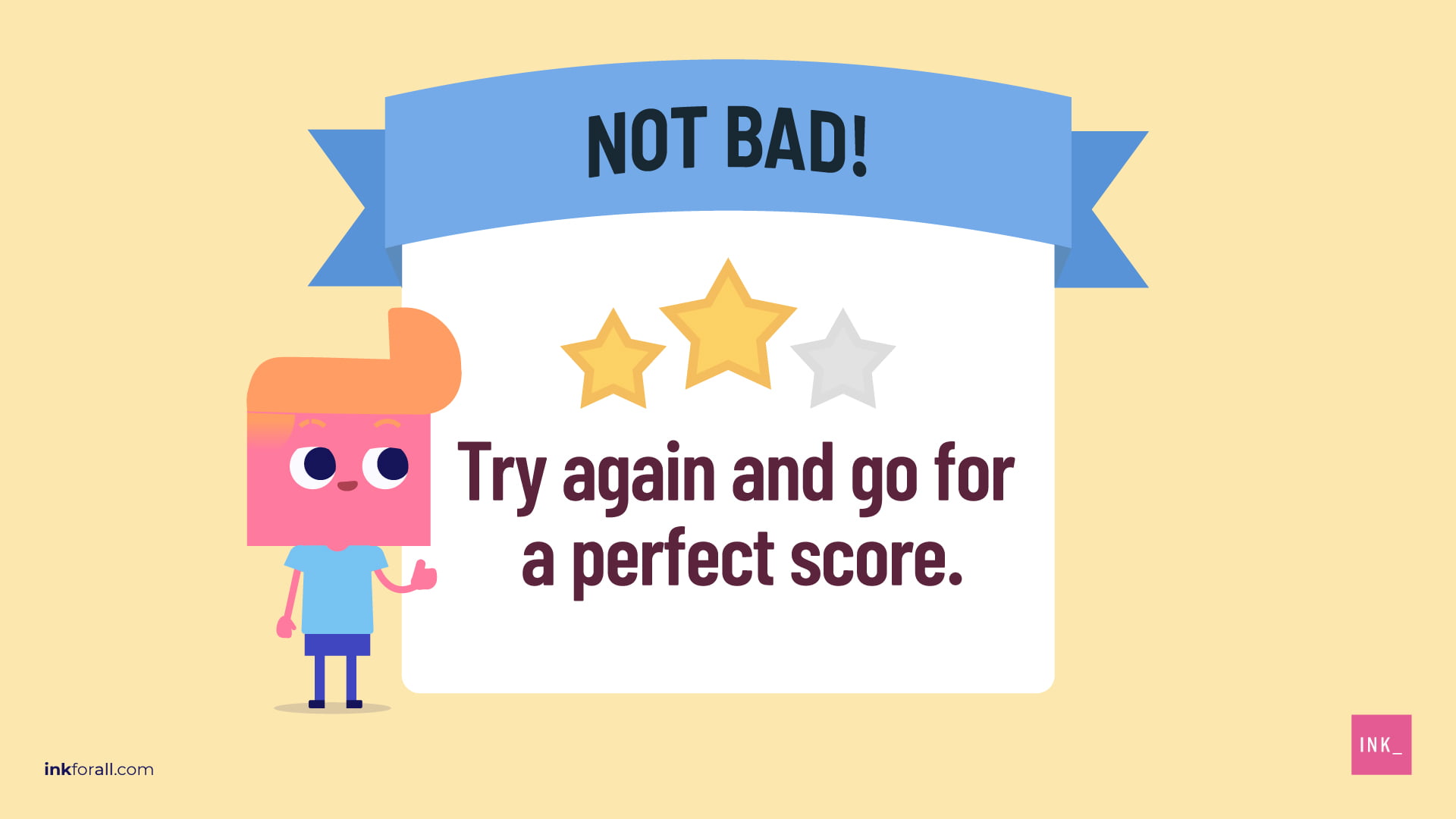

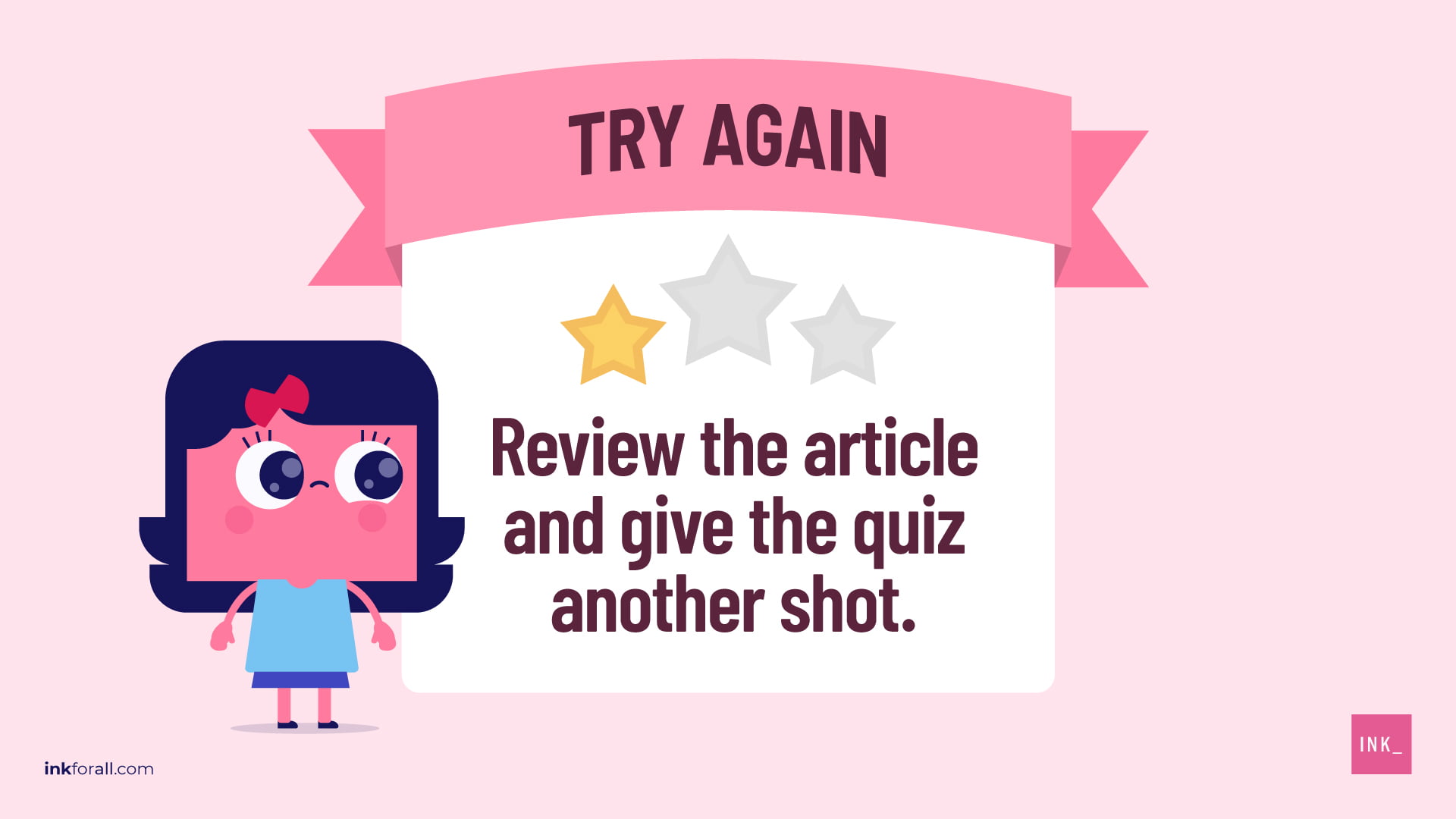


This isn’t bad! 😁
Thanks, Kinsley! We appreciate your positive feedback. Please check out our other articles and don’t forget to try the quizzes! We love to know your thoughts. 🙂
This is awesome!😃
Thank you, Harry!